Hedva Livnat, Kibbutz Tuval, 02.04.14
Hedva is the publisher and a co-founder of Dugrinet, a web magazine from the Galilee that addresses communal, social and political issues. She is part of the women only multicultural team that runs Dugrinet that has recently won the Pratt award presented for the 12th year to outstanding journalists that deal with issues concerning the environment and society in Israel.
It’s impossible to know Hedva and not to feel the urge to get more involved, not because she’s intimidating, but because of her enthusiasm. After the interview I joined Hedva for her meeting with Dr. Orit Braun-Benyamin, the head of the biomechanics group from the Mechanical Engineering Department at ORT Braude College in Carmiel. It was so inspiring and humbling to hear the stories behind the amazing projects during which the students are developing devices personally and specifically attuned to people with special needs and disabilities, many of whom are children.

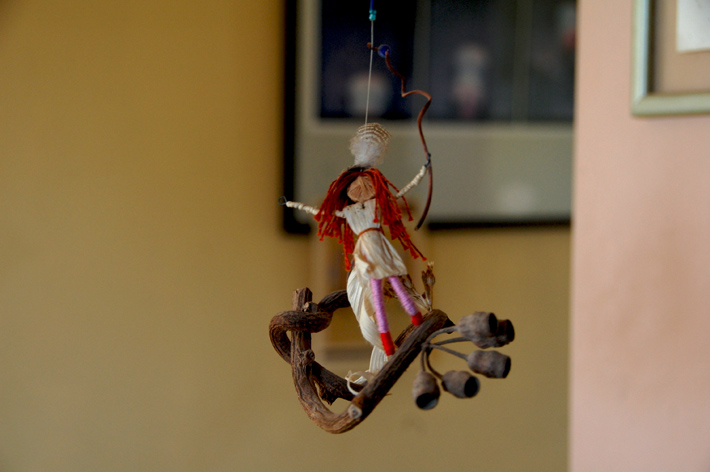
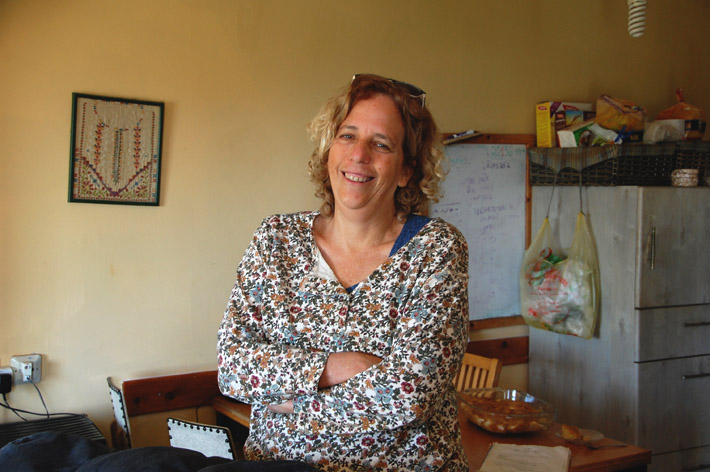

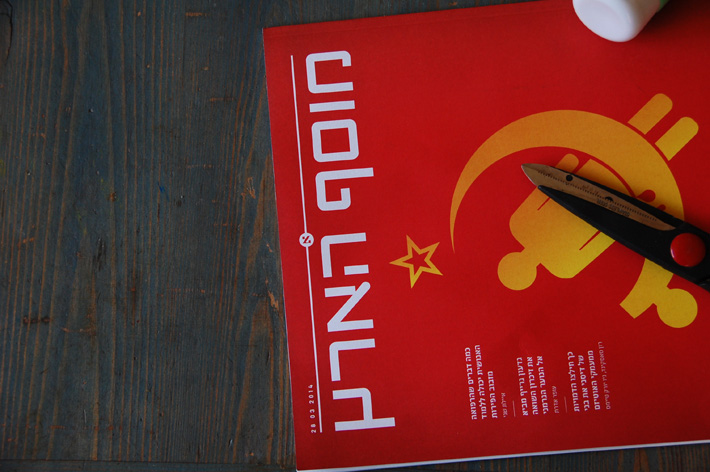

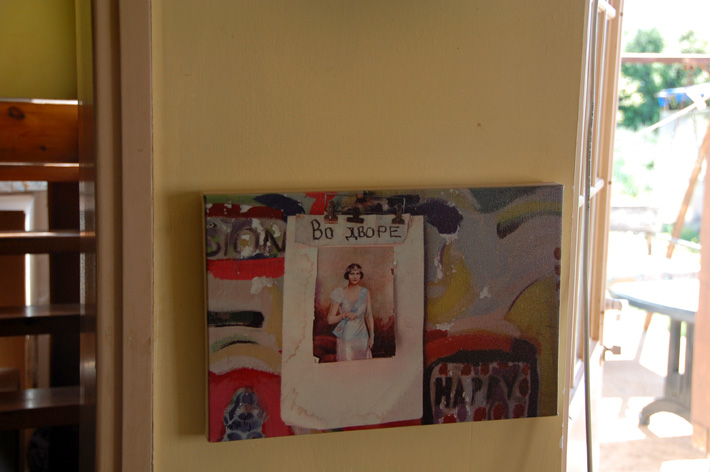
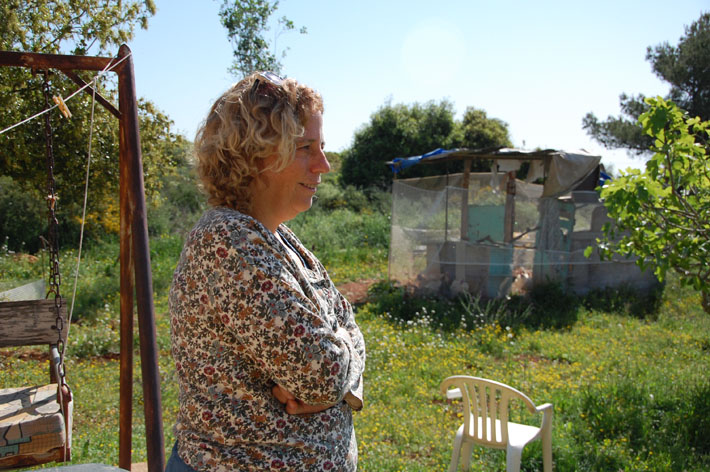
Dugri is a Hebrew slang term meaning:
- Straightforwardly, honestly, bluntly, assertively, telling it like it is
The word comes originally from the Turkish ‘doğru’ that was assimilated in Arabic as دُغْرِيّ (‘dughri’ with gayn /ɣ/) and then borrowed to Hebrew.
What does Dugrinet mean to you?
Dugrinet is a website, but to me it’s a platform for making changes in the society. The idea behind it is to find less known issues – sometimes because nobody addresses them and sometimes because they make us uncomfortable – expose them, find different angles and, if possible, take them further. We achieve the latter by organizing events and field trips and by forwarding the information to larger media, and thus trying to make a change. It’s a form of social activism. I want to make people move from their spot the smallest of steps.
During the years Dugrinet has been active, have you seen any changes in the relationships between the different communities living in the Galilee?
Change depends on a personal perspective. Nothing has changed apart from my ability to see the different points of view. When you start digging you understand the systems and the interrelationships more thoroughly. There have been lots of small changes in the Galilee; it’s like in evolution. However, if something were to happen now between Jews and Arabs, it would not surprise me as it did in 2000, because of what I know now and not because the situation is better or worse. It’s not easy to understand what’s going on in the area – people don’t speak [Arabic] and don’t go to the [Arab] villages.
On your website you mention your intent to offer a platform to the usually silent voices. Can you please explain who those voices are?
Sometimes a voice represents a certain issue, like disabled people. Their voice is heard up till a certain point. The accessible or salient voice is to see whether there is a lift and a passage for a wheelchair, the less accessible voice is to see whether the switches and taps are at the appropriate height, and the least accessible is that people in wheelchairs are looked upon as though they are idiots. The voice is not accessible to the public because nobody listens to it, because it’s not clear enough.
I have an interesting example. Margalit, who writes on Dugrinet a great column about accessibility for the disabled, couldn’t get to the Western Wall in Jerusalem that, apparently, was only accessible if the visit was scheduled in advance. We offered this information to a radio program while explaining that Margalit can’t speak clearly, which is part of her disability. The interview was denied because they didn’t want to talk to anybody but her. So even though we did everything we could, her voice remains inaccessible.
Sometimes it’s crucial to look at a problem from a social and cultural point of view instead of labeling it as a personal issue. One of the hospitals in Haifa hires employees only if they live within a 45 min drive radius. Most of the Arabs live farther than that and do not get the job even though they are able and qualified for it. The solution offered to the applicant is to move, which is, usually, very complicated for Arabs. Thus everybody loses. This is an example of an inaccessible Arab voice.
My ability to get to those voices is still very restricted because I don’t belong to them. People with a silent voice often think that they don’t have anything interesting to offer or that anybody will be willing to listen. My job is to look for solutions that’ll enable true equality. With every issue I strive to get to the bottom stratum, like in archaeology, knowing that I did everything I could even if the problem remains unresolved.
In your opinion, what’s the level of Dugrinet’s reach to the Arab population?
Not very high. About 10% of the writers are Arabs; sometimes more than 50% Arabs come to events, but almost none come to field trips; very few write to us or respond to the articles. It was always our intention that the silent voices will be heard by people from the same background, that poor people will read a piece on the poor. Today I realize that the poor will not read Dugrinet because they don’t have a computer, or time or awareness. Those voices are meant to be heard by a different audience that would want to make a change.
From the Jewish side I’ve seen an interest in hearing the Arab voice. Whether Arab audience is interested in the Jewish point of view? It depends. The Arabs feel that they’re constantly hearing the Jewish side, so I’m not sure that’s what they are looking for. Some topics, like the (Jewish-Arabic) Galil School, receive lots of attention, but if I were to write about lands, probably it won’t be as attractive a topic.
Where the most influence lies is the most important. Last year three of our articles were published in “Haaretz” newspaper, which set some wheels in motion. If due to an article we published people discovered a new different narrative to an issue, then that’s influence. I think changes have to come gradually and through fieldwork, even 5% success is great.
I assume that as a social activist you’re often faced with indifference and lack of concern. What drives you on?
My deepest fear is that I’ll become indifferent, and then maybe my children will become indifferent. Indifference is dullness, numbness, a way of dying. I think that living for a better world is a kind of drug. I don’t think that people are indifferent either; they are tired, or have given up or see things differently.
No issue I’m fighting for leaves me undisturbed. I’m fighting my personal wars, and not of others. Taking for example the matter of inaccessibility in the Nahariya train station – the fact that today I’m able to get to the train by foot, doesn’t say anything about what awaits me in the future. I’m also not intimidated by the word ‘fight’, although it’s considered unfeminine.
I’ve read that you’re doing food tours in the Galilee. What characterizes the food here?
The tours are about Arab food, not Galilee food. I’m not a food expert; I’m just using it as a means to communicate with the Arab society. Food represents interactions inside a family, the connection between tradition and modernity. Most of all food represents culture. Creating a gathering around food enables other meaningful conversations not necessarily about its preparation but about its social impact.
I began making those tours after reading Liora Gvion’s book Culinary Bridges versus Culinary Barriers: Social and political aspects of Palestinian cookery in Israel. I approached a few women I know well that have a story to tell and suggested they cook for groups. Because of my intimacy with them the connection is really fast which in turn enables diving directly into the story. The story is always interesting since they don’t feel obligated to a script, are willing to open up, and they’ve established trust. Therefore, it’s such a good tour for women, because women talk differently with only women around, especially Arab women.
I’ve noticed that in the radio show you had you’d interviewed more women than men.
Yes, because women are much more involved in the social field, because I’m closer to women, prefer to work with them; women are more cooperative. It’s a ‘birds of a feather’ kind of thing. If I was in the military, I suppose there were more soldiers and economists.
What do you like most about the Galilee?
I like that everything is mixed together – the water and the mountain, Jews and Arabs, and the otherness. I like the Galilee because I know it, and like in an extended family there is a love-hate relationship. I respect the different narratives in myself as well. I always say that my occupation is Galilean. I couldn’t have done what I do in the South, because I don’t know it well enough. The knowledge I’ve gathered during more than twenty years of living here is my specialty.

Pingback: Freekeh bread | make eat